india-300x275.jpg" alt="Khadija Khatoon. Photo: Cover Asia Press" width="300" height="275" /> Khadija Khatoon. Photo: Cover Asia Press
West Bengal, India, 26 Muharram 1437/8 November 2015 (MINA) – A women in India has spent her life without a face after doctors told her family there was nothing they could do.
Khadija Khatoon doesn’t even know if she has eyes or a nose and her mouth is a small slit on the left side of her face, The Daily Mail reported.
The 21-year-old is thought to have neurofibromatosis, the general name for a number of genetic conditions that cause swellings or lumps, which has severely distorted her features.
But despite her devastating deformities Khadija insists she is happy. ‘I’m made this way and I accept it graciously,’ she said.
Also Read: UN Experts Warn Right Violations in Kashmir by Indian Authorities
‘I do what I can. If this is how I’m meant to be then I live with it. It’s not a matter of coping, I just live as I am.’
Khadija was born at her home, in Kolkata, West Bengal, Eastern India, to impoverished Muslim parents.
Her father Rashid Mulla, 60, and mother Amina Bibi, 50, realised something was wrong when she hadn’t opened her eyes at two-months old.
‘She was born with thick heavy eyelids and she looked different to my other children at birth but we didn’t think anything of it until we realised she couldn’t open her eyes properly,’ said Amina.
Also Read: At Least Nine Children and One Woman Killed in Pakistani Airstrike on Afghanistan
‘When we took her to the hospital she was admitted for six months and they did lots of tests but doctors eventually told us there was nothing they could do.’
Khadija’s condition worsened as she grew up and the extra skin continued to grow out of control.
‘Because the doctors told us there was nothing they could do we never went back to them,’ Amina added.
‘And as Khadija got older she refused any help.’
Also Read: Pakistan Condemns Israeli Settler Attacks in West Bank, Al-Aqsa Storming
Khadija has never been to school and has learnt all she knows from her two brothers, Rutpaul 28, and Muzzafar, 25, and three sisters who are now married and left home.
Khadija said: ‘I don’t have any real friends but I have my family. My family is my only friend and I love them dearly. My parents are my world. I don’t talk to strangers.
‘This is who I am and this is the life I live and I fill my days sitting and thinking, talking to my mother about life and going for walks near my home. I like drinking tea. I am happy in this life.’
Although many people who have the condition inherit it from one of their parents, up to 50 per cent develop it randomly from a gene mutation before they are born.
Also Read: China Criticizes US-Drafted UN Gaza Resolution as Vague, Abstains from Vote
Despite their alarming appearance, the growths and swellings – called neurofibromas and caused by a growth of cells – are not cancerous or contagious.
Khadija’s brothers work in a bakery earning 7,000 Rs (£70) a month, but her father doesn’t have full time work, managing only occasionally to sell garden fruit at the market.
Khadija hopes the government will come forward and help with the family’s finances.
She said: ‘If only the government would see my position and help me, I would like that.’
Also Read: Former Bangladesh PM Sheikh Hasina Sentenced to Death
However, she insists she does not want surgery for fear of risking her life.
Her mother said: ‘Doctors told us when she was a baby that if she attempted surgery she could die, so we have lived with that fear.
‘Now that Khadija is much older she has decided herself that she doesn’t want to have surgery. She doesn’t want to risk dying.’
Dr Anirban Deep Banerjee, a neurosurgeon from Apollo Hospital, in Kolkata, said tests would confirm the illness.
Also Read: Pakistan Declares State of War After Car Bomb Incident
He said: ‘I believe she is suffering from neurofibromatosis but to confirm we would need to do a gene test.
‘There’s a possibility she has a tumour inside her face which could be fatal.
‘Right now there is no way of knowing if she has tumour inside the extra skin and if left they could kill her.
‘If she’s willing we would need to do a lot of tests to determine how successful surgery would be.’
Also Read: Jakarta Hosts Gala Dinner for World Peace Forum Delegates
Local government officer, Rupak Dutta, 52, from Kolkata, flagged the situation after seeing her on the street last week.
He said he felt compelled to do something and posted a photo of Khadija on Facebook urging people to help.
‘I was walking to my office the other day when I spotted her,’ he said.
‘I’d never seen such a face. I have a 13-year-old daughter and I thought what if she was my daughter?
Also Read: Indonesian Minister Urges Synergy Between Wasathiyah Islam and Chinese Wisdom
‘I didn’t even notice tears were falling down my cheeks. I have limited sources to help but I thought the power of social networking would surely help so I posted her photo on Facebook.’
Rupak is now in talks with local NGOs who will help Khadija meet with specialists to discuss possible surgery.(T/R04/R03)
Mi’raj Islamic News Agency (MINA)
Also Read: New Delhi Covered in Toxic Smog: Residents Say ‘We Can Hardly Breathe’





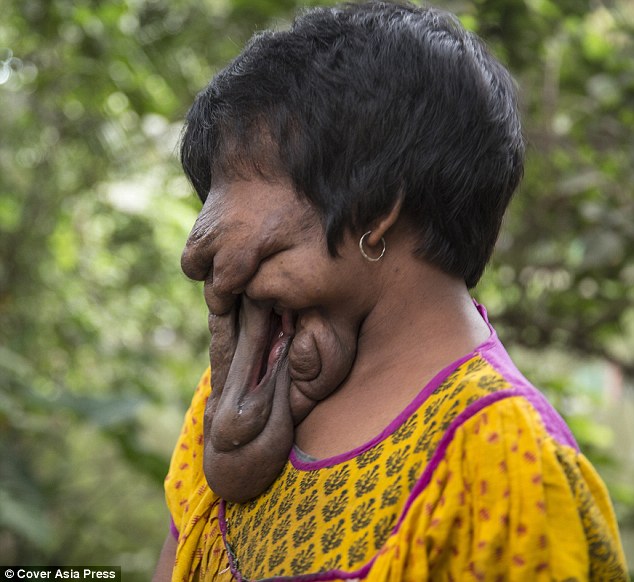


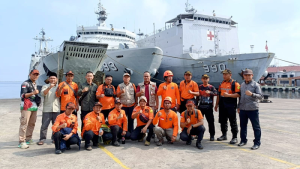
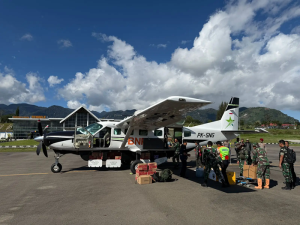
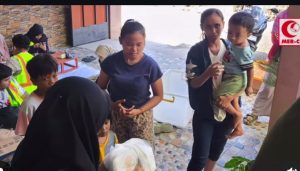


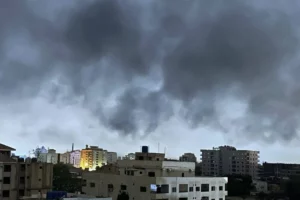

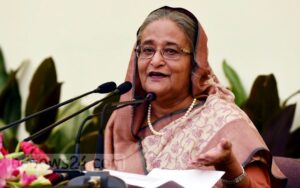

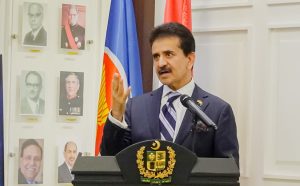

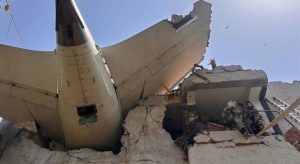












 Mina Indonesia
Mina Indonesia Mina Arabic
Mina Arabic